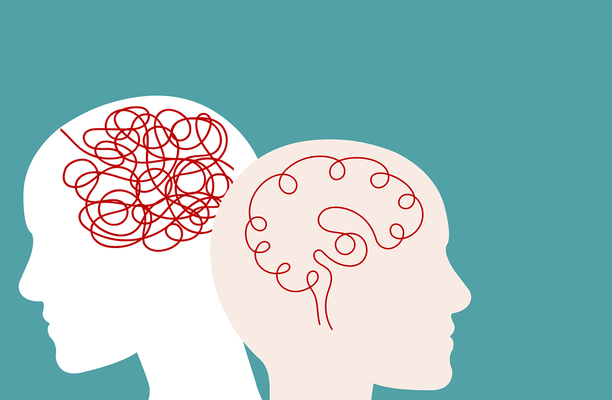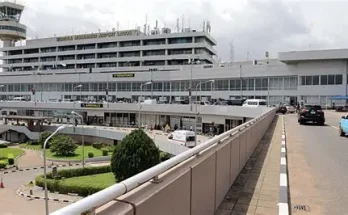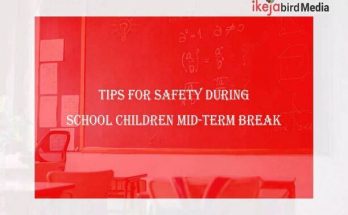By Bababunmi Agbebi
Edited by Ezennia Uche
In recent years, the conversation around mental health in Nigeria has gained momentum, but in places like Ikeja, the state capital of Lagos and a hub of business, education, and everyday life, many are asking: Is the support really there when people need it?
From the stress of daily hustle to the silence surrounding depression and anxiety, young people in Ikeja especially students, job seekers, and early-career professionals are increasingly affected. Dele Olaniyan,a practicing psychologist working in Lagos, says he sees firsthand how cultural stigma, lack of services, and socioeconomic stress combine to create a mental health crisis hiding in plain sight.
Olaniyan shares examples of mental health situations he has handled
Real Experiences Behind Closed Doors(Not their real names)
- Tolu, a 22-year-old university student, came to me complaining of “sleeplessness and fear.” Underneath that was severe exam anxiety, made worse by pressure from home. Her friends told her to “pray more.” She felt ashamed to admit she was falling apart emotionally.
- Chima, 26, had just lost his second job in under a year. “I feel like a failure,” he told me, explaining that he had begun drinking heavily at night just to quiet the noise in his head. He didn’t know mental health support even existed in Ikeja until a cousin gave him my contact.
- Ngozi, 19, was referred after fainting at school. The physical symptoms masked deep emotional burnout. “I didn’t think stress could make me sick like this,” she said. She’d been caring for her younger siblings while preparing for WAEC exams, all while managing grief from the recent loss of her father.
These stories reflect what many go through silently, yet mental health remains largely invisible, and too often, untreated.
The Cultural Silence
In Nigerian culture, mental health is still shrouded in misunderstanding. Many still associate mental illness with “madness” or spiritual attack. Young people fear being labeled as weak, unserious, or even cursed. As a result, they internalize their struggles leading to isolation, shame, and worsening symptoms.
Even among educated families in Ikeja, phrases like:
- “Just pray about it,”
- “You’re too young to be depressed,” or
- “Other people have it worse”
are still commonly used in place of support or intervention.
What Support Exists in Ikeja?
Public Health Services
Government hospitals like the Federal Neuro-Psychiatric Hospital, Yaba (accessible from Ikeja) provide specialist services. However, long wait times, overcrowded clinics, and limited staff reduce effectiveness for early intervention or outpatient therapy.
Private Clinics and Therapists
There is a growing number of private psychologists, therapists, and wellness clinics offering therapy in Ikeja, but most charge fees that are unaffordable for the average youth. Sessions can cost ₦15,000–₦25,000, making consistent care out of reach for many.
Hotlines and NGOs
Some organizations like Mentally Aware Nigeria Initiative (MANI) and She Writes Woman offer mental health hotlines, virtual peer support groups, and awareness campaigns. These are valuable, but often under-publicized or unavailable in crises.
The Gaps
- Limited Access – Mental health services are not embedded in primary health care. Most local clinics don’t have trained mental health professionals on staff.
- Cost Barriers – Affordable therapy is rare. Free services are overbooked or too far away.
- Lack of Awareness – Many don’t recognize their symptoms as mental health issues or know where to go for help.
- Stigma – Cultural and religious attitudes often prevent people from even acknowledging the need for help.
Psychological Impact
The consequences of this lack of support are serious. Untreated mental health issues among young people can lead to:
- Academic failure
- Substance abuse
- Family breakdowns
- Suicidal thoughts or attempts
- Long-term mental illness
Olaniyan further explains that from a clinical perspective, many of these conditions are highly treatable especially when caught early. But the window for prevention is often missed because support isn’t available when needed.
What Needs to Change?
1. Mental Health in Schools and Universities
- Introduce mental health education into the curriculum.
- Provide trained counselors in secondary schools and tertiary institutions in Ikeja.
2. Community Awareness Campaigns
- Run local workshops and open forums in churches, mosques, youth centres.
3. Subsidized Therapy Options
- Partner NGOs with local government to provide sliding-scale or free therapy options.
- Create local “therapy hubs” in Ikeja that are walk-in and youth-friendly.
4. More Trained Professionals
- Invest in training more psychologists, counselors, and psychiatric nurses.
- Provide incentives for professionals to offer services in underserved areas like Agege, Ogba, and Oregun within Ikeja.
5. Safe Spaces
- Establish peer-led support groups and community mental health clubs.
- Use platforms like WhatsApp or Telegram to maintain engagement and access.
Final Thoughts
Olaniyan gives a clear and structured guide on how mental health can be managed, both on a personal and community level
- Regular Exercise: Boosts mood by increasing serotonin and endorphins.
- Balanced Diet: Nutrient-rich foods support brain function.
- Adequate Sleep: Poor sleep worsens anxiety, depression, and stress.
- Limit Alcohol & Drugs: Substance use often worsens mental health issues.
- Meditation & Deep Breathing: Reduces anxiety and improves focus.
- Mindfulness: Stay present and reduce overthinking.
- Time Management: Avoid overwhelm by planning and prioritizing tasks.
- Engage in Hobbies: Art, music, gardening, reading, they create emotional outlets.
- Talk to trusted friends or family when feeling low.
- Avoid isolating yourself. Connection combats loneliness and depression.
- Reduce negative social media use (comparison).
- Set boundaries with toxic individuals or environments.
- Filter news intake if it’s emotionally draining.
Mental health is not a luxury; it is a human right. And in a place as dynamic and youthful as Ikeja, ignoring this need only stifles the future of its residents.
We are making progress, but there is still a long road ahead. I urge not just health professionals, but educators, parents, policymakers, and youth leaders to take mental health seriously. Talk about it. Ask real questions. Listen without judgment. And most importantly make help easier to access.
Because no one in Ikeja or anywhere should suffer in silence.








